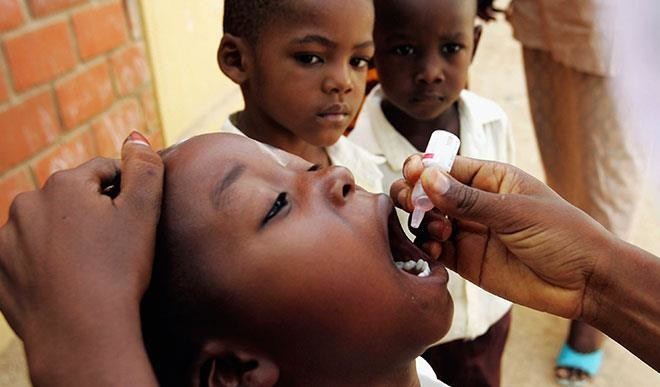Nigeria on Wednesday marked three years free of endemic wild polio, the World Health Organisation (WHO)’s Regional Director for Africa, Dr Matshidiso Moeti, has said.
Moeti made this known on Wednesday during telenews conference, saying it shows that Africa had passed a milestone threshold of three years with no case of wild polio virus detected.
“It also signifies that the nation’s progress in fighting the crippling viral disease can result in the whole of WHO Africa region to be certified and declared polio-free early 2020,” WHO director said.
Moeti said that this three-year landmark sets in motion a comprehensive evaluation process by the Africa Regional Certification Commission to determine if the entire WHO African Region of 47 countries could be declared to have eradicated Wild Polio Virus.
The News Agency of Nigeria (NAN) reports that Africa’s last case of wild polio was recorded in Borno on Aug. 21, 2016.
Polio is a highly infectious viral disease that invades the nervous system.
It can cause total paralysis in a matter of hours; the virus is transmitted from person-to-person through ingestion of infected fecal matter
Following infection, the virus is shed intermittently in excrement for several weeks with little or no symptoms in majority of cases.
The initial symptoms of poliomyelitis include fever, fatigue, headache, vomiting, neck stiffness and pain in the limbs.
The latest Global Polio Eradication Initiative (GPEI) figures show that there have been a total of 65 cases of wild polio worldwide- 53 in Pakistan and 12 in Afghanistan- so far recorded in 2019.
Moeti, “We are confident that soon we will be trumpeting the certification that countries have, once and for all, kicked polio out of Africa.”
The director commended the continent’s resilience and strong commitment to stopping the virus in overcoming the tough challenges.
“The path to eradicating polio in Africa has been a monumental effort of multinational coordination on an unprecedented scale.
“It involved providing vaccinations to hundreds of millions of children and conducting immunisation campaigns in some of the most remote locations in the world, with vigilance and exhaustive surveillance to timely detect outbreaks, including among people on the move.
“It has involved men and women volunteering in the thousands, sometimes putting themselves in harm’s way, some even sacrificing their life for this work,” she said.
Moeti noted that the successes recorded were possible with the perseverance of countries and partners in the Global Polio Eradication Initiative who have mobilised the financial and technical resources to get the job done.
On the challenges that could hinder progress, she said they included inaccessibility due to conflict and insecurity in some areas.
“Variations in campaign quality, massive mobile populations and, in some instances, parental refusal have prevented health workers from reaching all children everywhere with polio vaccines alongside suboptimal routine immunisation coverage.
“As a result, outbreaks of circulating vaccine-derived polio virus– a rare occurrence in communities with low levels of population immunity– are still possible in several countries across Africa.
“This August’s milestone on wild polio is a positive sign of progress across the continent, but our work has not yet done,” Moeti said.
The WHO director urged Nigeria and other African countries to remain vigilant in the immunisation and surveillance efforts.
“Every country must continue to ensure that it is closely looking for the virus and reaching every child with vaccines,’’ Moeti said. (NAN)

 Join Daily Trust WhatsApp Community For Quick Access To News and Happenings Around You.
Join Daily Trust WhatsApp Community For Quick Access To News and Happenings Around You.


